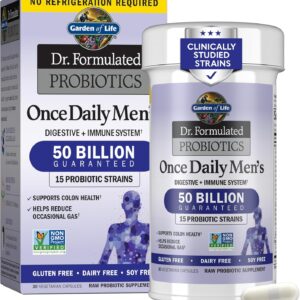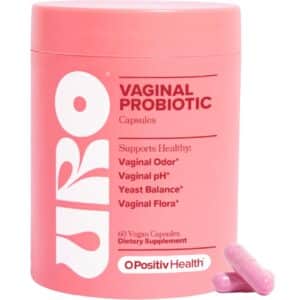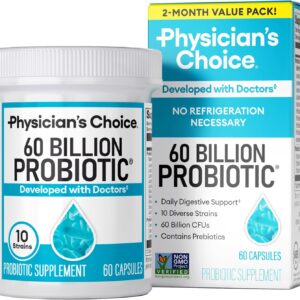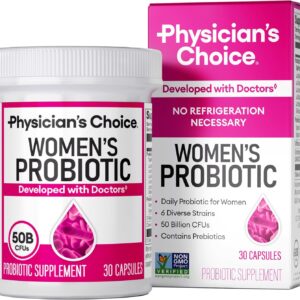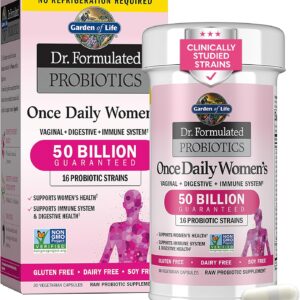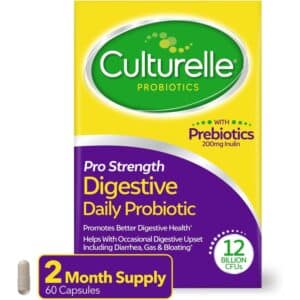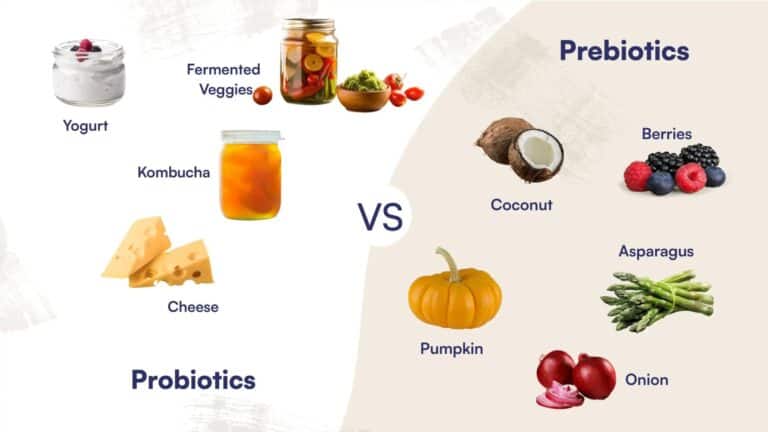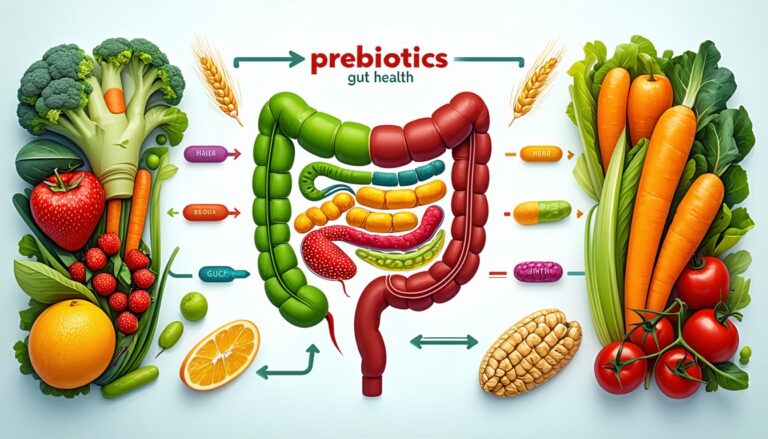Probiotics for Upset Stomach have gained traction as a natural solution for those battling digestive discomfort. Whether it’s bloating, gas, or more serious gastrointestinal issues like IBS or antibiotic-induced diarrhea, probiotics offer a promising way to restore gut balance and promote smoother digestion. These “friendly” bacteria, found in fermented foods and supplements, are not just gut-health warriors—they also bolster the immune system, regulate cholesterol, and contribute to overall well-being. This article explores the science behind probiotics, how to choose the right strains, and why professional guidance matters in managing stomach troubles effectively.
Understanding Probiotics
What Are Probiotics?
Probiotics are those awesome little creatures, often dubbed as “good” or “friendly” bacteria, that can sprinkle some magic on your health. Found in foods like yogurt or supplements, they work wonders by keeping your gut’s team of bacteria balanced. Yeah, that’s a thing! They mainly hang around in fermented foods and supplements, lending you a hand in soothing trouble like IBS, inflammatory bowel problems, and the dreaded infectious diarrhea.
| Meet the Probiotic Squad | Superpowers |
|---|---|
| Lactobacillus acidophilus | Great at stopping those post-antibiotic bathroom visits and bolstering your gut game. |
| Bifidobacterium lactis | Mighty in digestion and battling germs. Your tummy’s best pal. |
| Lactobacillus plantarum | Takes on tummy troubles and slays IBS like a pro. |
Curious about these gut guardians? Dive into our piece on probiotics and digestion and get the scoop.
How Do Probiotics Benefit Your Health?
Probiotics do much more than keep your tummy happy. They act like superheroes fixing the imbalance of bacteria caused by bad habits, stress, or illness. It’s like giving your belly a big ol’ hug and making everything better. Here’s how they work their magic:
- Smoother Digestion: Get the munchies without the worries. Probiotics help munch food better and calm digestive issues.
- Immune Boost: By keeping your gut party in control, probiotics also give your immune system a boost, helping you ward off those nasty bugs.
- Cholesterol Control: Some kinds can even help keep your cholesterol in check, which is a win for your heart too!
- Guard Against Digestive Disorders: They’ve got a knack for preventing the runs that follow antibiotics and help maintain harmony in problems like ulcerative colitis.
Dig deeper with our article on probiotics for gut health. Thinking about adding these to your routine? Have a chat with your doctor to pick the best fit for your needs.
Choosing the Right Probiotic
Picking the right probiotic can feel a bit like finding the perfect pair of jeans—there are loads of options, and not all are going to be a good fit. Especially if you’re dealing with a grumpy stomach. Here’s what to think about and why a chat with your doc might be a wise move.
Things to Keep in Mind
When you’re checking out probiotics, keep these in your back pocket:
- Probiotic Strains: Not all bacteria are the same. Some, like Lactobacillus and Bifidobacterium, are pros at smoothing out digestive issues. Others might give your immune system a little backup. Knowing what you want can steer you in the right direction.
- Count of Living Buggers: CFU, or Colony Forming Units, tells you how many live critters are inside. More bacteria might mean stronger effects, but it’s not a one-size-fits-all. A healthcare provider can help you figure out what’s right.
- Trustworthy Quality: Grab probiotics that have been checked by those who know their stuff. This makes sure the good bugs are still kicking when you take them. For more insights, check out our page on high quality probiotics.
| What to Look At | Key Points |
|---|---|
| Probiotic Strains | Pinpoint strains that suit your needs |
| Count of Living Buggers | Higher numbers usually pack more punch |
| Trustworthy Quality | Seek third-party approval |
Why Talk to a Healthcare Pro
Before you pop any probiotic pills, especially if your health isn’t running on all cylinders, having a word with your healthcare provider is smart.
These folks can look at your personal health puzzle and suggest strains that fit just right. If your digestion’s off-kilter, they might point you to probiotics that aim to reset that balance. And for anyone on heavy meds or with health woes that aren’t going away, some probiotics could stir up trouble due to unwanted microbes.
Jumping into supplements like probiotics should always start with a thumb’s up from a healthcare professional. They’re the guides to finding the best probiotic supplements for gut health that vibe with what you need. It’s crucial if you’re on treatments like chemo or dealing with tricky health stuff.
Figuring out what works for you and getting a professional opinion means you can make a smart choice and get the most out of those probiotics. Your gut will thank you!

Probiotics for Digestive Health
Probiotics are your stomach’s little helpers, keeping things in check and making sure your gut’s a happy camper.
Taming Tummy Troubles
If your digestive system ever feels like a troublemaker, probiotics might just be the peacekeepers you need. They’re like tiny superheroes battling symptoms such as bellyaches, unwanted gas, and the dreaded bloat, especially for folks dealing with the notorious IBS. The more, the merrier applies here—multiple probiotic strains often do a better job than a solo act.
Here’s a quick look at how different probiotics can team up with your gut to tackle common digestive dramas:
| Belly Blues | Friendly Bacteria Buddies | Good Vibes |
|---|---|---|
| Irritable Bowel Syndrome (IBS) | Lactobacillus, Bifidobacterium | Less pain, less puffiness |
| Inflammatory Bowel Disease | Multi-strain crew | Stronger overall gut |
| Infectious Diarrhea | Lactobacillus rhamnosus | Quicker recovery |
| Baby Eczema | Lactobacillus, Bifidobacterium | Help from the get-go |
Your doctor might talk probiotics if your gut isn’t working like it used to—maybe after you’ve been sick or on meds that upset your gut’s gang.
Keeping Your Gut Happy
Think of your gut microbiome as a garden. Probiotics are like the gardeners that keep everything growing just right. When your gut garden is in top shape, the rest of your body feels the love, too.
To keep the good bacteria blooming in your belly, you might want to munch on these:
| Probiotic Buddy | Found In | Gut Gains |
|---|---|---|
| Lactobacillus acidophilus | Yogurt, supplements | Overall tummy support |
| Bifidobacterium bifidum | Fermented goodies | Immune system boost |
| Lactobacillus plantarum | Sauerkraut, pickles | Bloat buster |
| Bifidobacterium lactis | Probiotic supplements | Gut guard duty |
Mixing up these strains can offer serious perks, from taming swelling to smoothing out digestion hiccups. Curious? Dive into our full scoop on how probiotics boost your belly health. Want those probiotics and prebiotics tips? We’ve got you covered, too. Putting your gut first can help fend off that pesky stomach upset. For more on easing stomach woes, check out our guidance on probiotic comfort for your tummy.
Probiotics for Upset Stomach
Feeling like your belly’s staging a mutiny? Probiotics might just be your new best friend. They’re the gut’s peacekeepers, sorting out the mess and restoring order. When your tummy’s in turmoil, these little guys can help chill things out, impacting not just your digestion, but your mood and immune system too. Let’s dig into how probiotics can calm that stomach storm and check out which specific types work best to keep your digestive system running smoothly.
Alleviating Stomach Issues
Dealing with a cranky stomach? Probiotics can step in like a trusty sidekick, easing discomfort and keeping pesky tummy troubles at bay. They’re champs at squashing common gut grumbles by keeping your internal ecosystem in check. They’re especially handy against things like dysbiosis, that irritable bowel thing, and those dreaded bouts of diarrhea, according to folks at the Cleveland Clinic.
Here’s the lowdown on what probiotics can do:
- Banish Bloating and Gas: Get in the habit of taking probiotics, and watch that bloating and gas disappear like magic.
- Boost Digestion: These good bacteria help your gut break down food better, so your nutrients are absorbed like a pro, leaving your digestive woes in the dust.
- Pump Up the Immune System: A happy gut means a strong immune defense, keeping pesky bugs that mess with your stomach at bay.
Wanna dive deeper into which strains get the gold star? Take a peek at our digestive probiotics guide.
Specific Probiotic Strains for Upset Stomach Care
Not all probiotics wear the same superhero cape. Some strains are rockstars in the stomach-fixing department.
| Probiotic Strain | What It Does for You |
|---|---|
| Lactobacillus rhamnosus | Cuts down diarrhea’s visit and eases those IBS blues. |
| Saccharomyces boulardii | The yeast wonder that stops diarrhea, especially from antibiotics. |
| Bifidobacterium infantis | Beats down on IBS symptoms like gas and bloating. |
| Lactobacillus acidophilus | Keeps the gut in check and manages any loose stool drama. |
Planning to jump on the probiotic train? Check out probiotic supplements for gut health packed with these powerful strains. A chat with your healthcare guru is always a good move to nail down what’s best for you.
Though probiotics can calm your gut, remember that starting them might stir things up a bit first. A few minor tummy rumbles can pop up initially, but they usually clear up as your body rolls with the probiotic routine WebMD.
Picking the right probiotic strains can turn your digestive woes around and keep your stomach happy. Want to learn how they can jazz up your daily life? Check out more on probiotics and digestion or discover solutions for when your stomach’s on the fritz with probiotics and upset stomach.
Safety and Side Effects
Before tossing back those probiotic pills or bolting your yogurt for a bothersome belly, knowing your way around them is a smart move for your tummy – and overall well-being.
Potential Risks and Caution
Probiotics play it safe with most folks since your body naturally hosts these tiny helpers. Still, some rare folks out there might toss up a red flag with an allergic reaction. Thinking of getting pregnant or already snuggling a baby in the belly or bosom? It’s wise to get your doctor’s two cents before jumping in with probiotics. Thumb-sucking tots might need a pediatrician’s nod to chow down on those probiotic gummies too (WebMD).
Got a dodgy immune system, just got sliced up in surgery, or dealing with something serious on the health front? You’ll want to give probiotics a pass. Turns out in those situations, things can get ‘too real’ with unwanted infections or unwanted side effects (WebMD).
Jumping into probiotics might make your gut feel a bit like a rodeo at first–you could end up with some gas, diarrhea, or a belly that feels like it’s got its own little bloat festival going on. Good news, though: these annoyances usually back off as your system rolls out the welcome mat for probiotics (WebMD).
| Possible Side Effects | Description |
|---|---|
| Stomach Upset | Easier than last night’s chili, but still a bother |
| Gas | Time to break out emergency window fans |
| Diarrhea | Temporary and best avoided during long car trips |
| Bloating | Your jeans might fight back… or refuse to close altogether |
Safety Guidelines for Probiotic Use
Here’s how to keep your probiotic game strong and trouble-free:
- Take It Easy: Just dip a toe in at first. A small dose is a good way to start. No need to dose up like there’s no tomorrow.
- Pick the Good Stuff: You want the good guys packed in and tested, right? Go for live cultures and effective strains. Check our high quality probiotics for the top contenders.
- Call in the Pros: Your doc or dietitian can be the ultimate guides in finding if you should even dive into the probiotic pool. Got meds? Make sure they play nice with any new additions.
- Listen to Your Body: Your stomach doesn’t speak up often, but when it does, pay attention. If something feels off after probiotics, hit pause and chat with your healthcare pro.
- Read the Fine Print: The green mystery glob may have something beneficial… or not. Match your probiotic claims to your health goals. Lactobacillus and Bifidobacterium are handy for gut stuff.
Follow these steps, and you’ll be onboard the probiotic train like a gut-health superstar. Taming a fussy stomach might start with the perfect probiotic. Curious for more gut wisdom or need a gut guru moment? Check our guide on probiotics for digestive health or peek at digestive probiotics for some neat options.

The Future of Probiotics
Thinking about how probiotics might shape up gastrointestinal health is pretty exciting, ain’t it? With scads of research underway, these little microorganisms may just have some tricks up their sleeves for us in the near future.
Ongoing Research
Folks are seriously digging into what probiotics can do for various health issues. Take the Mayo Clinic Center for Individualized Medicine, for instance. They’re diving into how personal microbiomes react to customized probiotics that match up with each person’s health needs. If that pans out, it could change the probiotic game big time, making them a go-to for handling more kinds of gut woes.
A lotta studies out there reckon probiotics can help folks dealing with irritable bowel syndrome (IBS), inflammatory bowel disease (IBD), and infectious diarrhea. Compared to other conditions, there’s more solid evidence coming through for these tummy troubles. Plus, certain probiotic strains are catching attention in specific setups. Hospitals, for example, are finding that they can help cut down the risk of some pretty nasty stuff like necrotizing enterocolitis (NEC) in premature infants NIH Office of Dietary Supplements.
Potential Health Benefits
As researchers keep at it, they’re unearthing how probiotics could play a role in overall health. Here’s a sneak peek at what they might bring to the table:
| Potential Health Benefit | Description |
|---|---|
| Antibiotic-associated diarrhea prevention | Strains like Lactobacillus rhamnosus GG and Saccharomyces boulardii can take the edge off diarrhea during antibiotic treatments. Aim for at least 5 x 10^9 CFU/day for kiddos and grown-ups alike to feel the benefit. |
| Treatment of infant colic | A dose of probiotics might just soothe colicky babies, which would be sweet relief for tired parents as well. |
| Help in managing ulcerative colitis | Probiotics are getting a look-in for their potential to keep ulcerative colitis in check. |
There’s a promising buzz about what’s next on the horizon. While we don’t yet know the best strains for each condition or the optimal dosage, ongoing studies offer hope that our insight into probiotics for upset stomach will only get better.
Embarking on a journey with probiotics could tie in nicely with how you’re caring for your health. Keeping tabs on the latest findings and developments can steer you toward smarter decisions about adding probiotics for gut health to your everyday habits.
Final Thoughts
Probiotics aren’t just a wellness trend—they’re scientifically backed agents of digestive harmony. When your stomach is acting up, introducing the right strains of probiotics can be a game-changer, helping alleviate bloating, gas, diarrhea, and more chronic concerns like IBS. However, probiotics aren’t one-size-fits-all. Identifying the right type, dosage, and format with the help of a healthcare provider is key to unlocking their full potential. As research continues to evolve, so does our understanding of how these microscopic allies can reshape gut health and, by extension, overall health.
Frequently Asked Questions (FAQ)
What are the best probiotics for an upset stomach?
The top strains for digestive relief include Lactobacillus rhamnosus, Saccharomyces boulardii, Bifidobacterium infantis, and Lactobacillus acidophilus. Each targets specific issues like diarrhea, bloating, or IBS-related discomfort.
Can probiotics help with chronic digestive conditions like IBS?
Yes, several probiotic strains have shown effectiveness in managing IBS symptoms. Multi-strain formulations, in particular, tend to offer more comprehensive relief than single-strain options.
How long do probiotics take to work for stomach issues?
Effects can vary by individual and condition, but many people report improvement within a few days to a few weeks of consistent use.
Are there side effects when starting probiotics?
Some users experience mild symptoms like gas, bloating, or diarrhea at first. These usually resolve as the body adjusts. If symptoms persist, consult your healthcare provider.
Should I talk to a doctor before taking probiotics?
Absolutely. A healthcare professional can recommend the most effective strains and dosages based on your specific health needs, especially if you’re on medications or have a compromised immune system.
Do probiotics help prevent antibiotic-related stomach issues?
Yes. Strains like Lactobacillus rhamnosus GG and Saccharomyces boulardii are known to reduce the risk of diarrhea caused by antibiotics.

